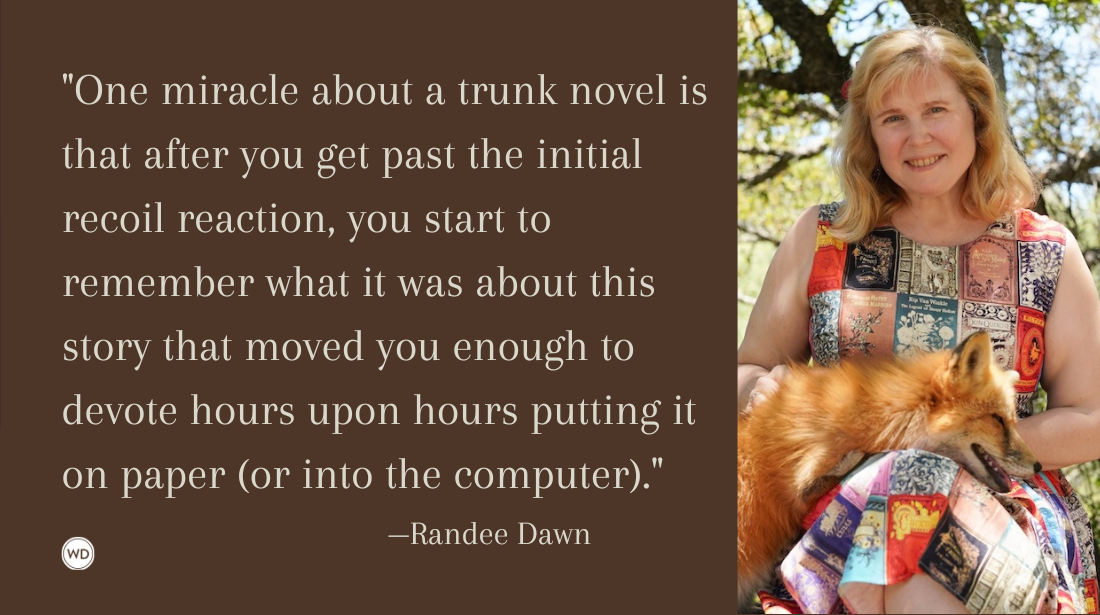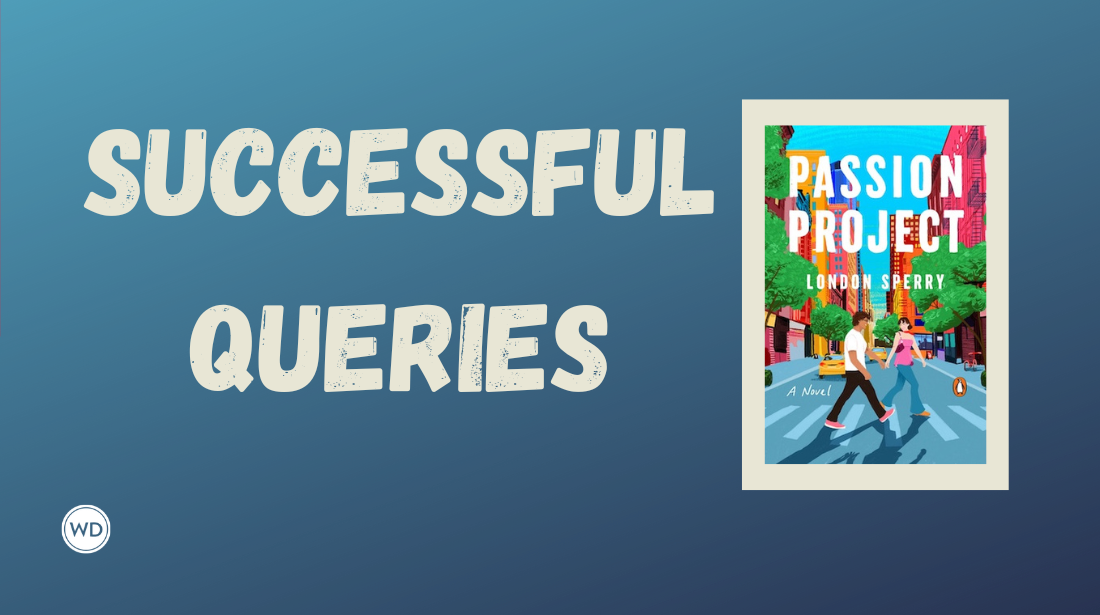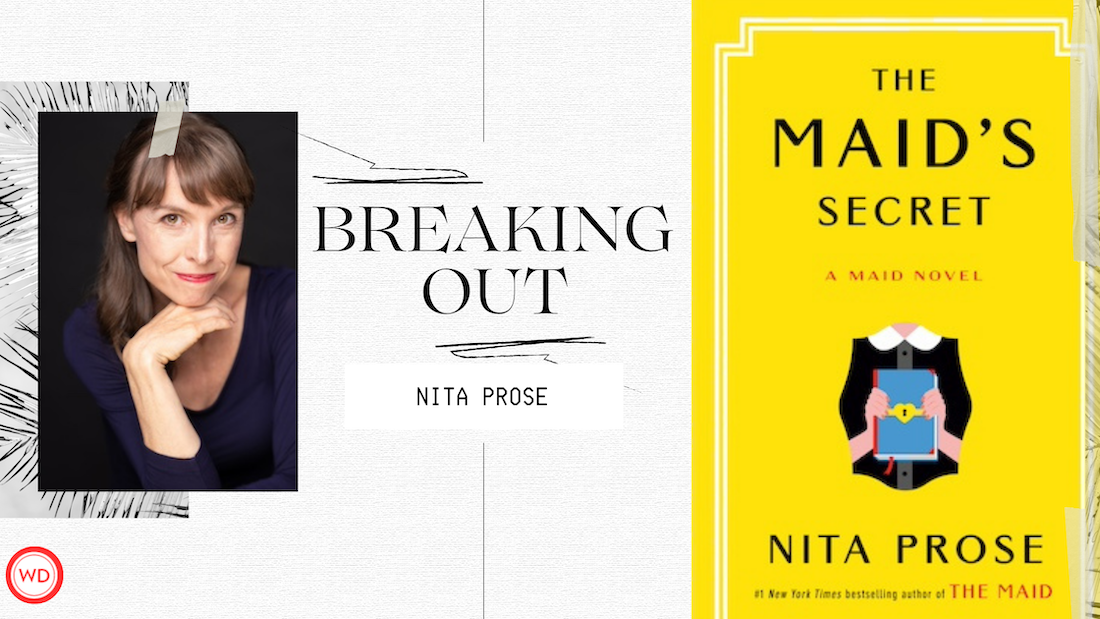7 Ways Podcasting Can Help With Writing Goals
Seasoned podcast producer and sound designer Jaimi Ryan shares seven ways podcasting can help with writing goals.
Over the past few years, it has become clear that podcasting is here to stay. Publishers, studios, and media gatekeepers of all kinds now take the medium very seriously, which has many writers thinking about podcasting as a career tool.
In my last post, I discussed examples of podcasts created by writers. These individuals were able to lean on their skills and experiences as writers to craft excellent, well-known podcasts that helped advance their careers.
For some, it was simply their skills that were a great fit for podcasting, others were able to adapt written work into audio episodes and some dug into heaps of previous research to create something new but adjacent to their written work. Each situation is unique but the opportunities are vast for writers looking to podcast.
Generating Buzz Around Your Upcoming Work
Podcasting is an excellent promotional tool for projects and for your personal brand as a writer or creator. A straightforward way to promote your written work on an existing podcast (yours or someone else’s) would be to feature a book teaser in the podcast feed if the book is relevant to the show.
I think the most valuable method is networking with podcasters to gain exposure to established audiences, whether you have your own podcast or not. Booking guest appearances on other podcasts is free promotion for you and your work. Find podcasts that align with your book’s theme or audience and pitch yourself as a guest. Their listeners are essentially a target audience for your work.
A step beyond guest appearances is cross promotion. If you have a podcast, have the host of a podcast you appeared on come onto your show. You can also create two-part crossover episodes with another podcast (half of the episode is on their podcast feed and the other half is on yours) to encourage new listeners to come to your feed in order to finish listening.
Another method of cross promotion is for podcasters to place advertisements or trailers for each other’s podcasts on their own episodes or feeds. Being willing to network and participate in interviews is one of the best ways to increase your exposure.
Creating a Companion Podcast for Your Written Work
Some writers (and publishers) create podcast series as companions to their books. These podcasts might include behind-the-scenes discussions about the writing process, character deep dives or lore expansions, reader Q&A episodes, thematic explorations related to the book’s subject matter, historical context, and more.
A companion podcast can enhance readers' engagement, especially in sci-fi and fantasy genres where fandoms commonly develop. It also attracts new audiences who may only discover your book through an episode of the podcast.
Side-Stepping Traditional Publishing Routes
Some indie authors have turned to podcasting as an alternative distribution method for audiobooks. A self-publishing writer could release audiobook chapters as individual podcast episodes and then offer the full audiobook behind a paywall. How much to release for free varies by situation. Some authors release their entire book or series as a free podcast and still see enormous book sales.
Scott Sigler for example, who I mentioned in my last post, released his work as free audio content and became a New York Times bestseller. It wasn’t until after the success of his podcast that he was reconsidered by major publishers. His story is a prime example of how podcasting can help launch a writer’s career.
Content Repackaging
If you’re a writer, then there is a good chance you have archives of writings and research that could be reworked for podcasting. Blog posts, essays, short stories, and previously unfinished writings can be adapted into audio experiences.
You may also have stacks of research from an old project. If you've already conducted the research for written work, why not explore repurposing it? Podcasting provides a platform to discuss your findings, interview experts, and share insights that might not make it into your final written work.
Insight via Analytics
One of the challenges writers face is tracking progress and reader engagement. Podcasting platforms provide analytics that offer insights into listener demographics, episode performance, and audience retention. You can discover how many listeners finished an episode, and if there were places in the episode where listeners dropped off. Unlike traditional publishing, where engagement is harder to quantify, podcast metrics provide excellent feedback so that writers can adjust their strategy based on data.
Accessing Non-Readers
You’ll likely find that the audience for your podcast work is a little different than the audience for your written work, as some people who enjoy your style may not be big readers, but love to listen. There are also plenty of people who would like to read, but are too busy.
If you release audio content, interested but busy people can listen while they go about their daily tasks. This makes your work accessible to a broader audience, which can grow exponentially as listeners are able to easily share the podcast with friends.
Breaking Through Writer's Block
Working in a new media forces us to forge new neural pathways in our brains. It can feel difficult at first, but with repetition, the pathways grow deeper and our new ways of working begin to feel more natural. This mental expansion can help open us up creatively through the experience of learning, novelty, and increased brain connections.
A simple way to use podcasting as a block breaking exercise would be to look through some of your work or research and try to construct a 20-minute podcast episode from some of the material. You will probably find yourself reorganizing information and changing the narrative structure to fit the new format, which can help with breaking out of routine thinking.
Embracing podcasting can open doors to fresh storytelling possibilities and help put writers on track for the next chapter of their careers. However you approach podcasting, remember to make it your own. You don’t even have to create your own podcast—guest appearances can do wonders for exposure. To get started, consider digging through your old research or pitching yourself as a guest on a podcast!
Jaimi Ryan is a seasoned Podcast Producer and Sound Designer with a background in music production. After pivoting from music to podcasting in 2017, she has had a wide range of podcasting experiences including podcast creation, remote recording, audio restoration, post production, content editing and hosting. Her credits include Unlocking Us and Dare to Lead with Brene Brown, Call Her Daddy, Anything Goes with Emma Chamberlain, and other Spotify Original and Exclusives as well as several independent podcasts. When she’s not producing audio, Jaimi enjoys block printing, sculpting and exploring her home city of Atlanta.








